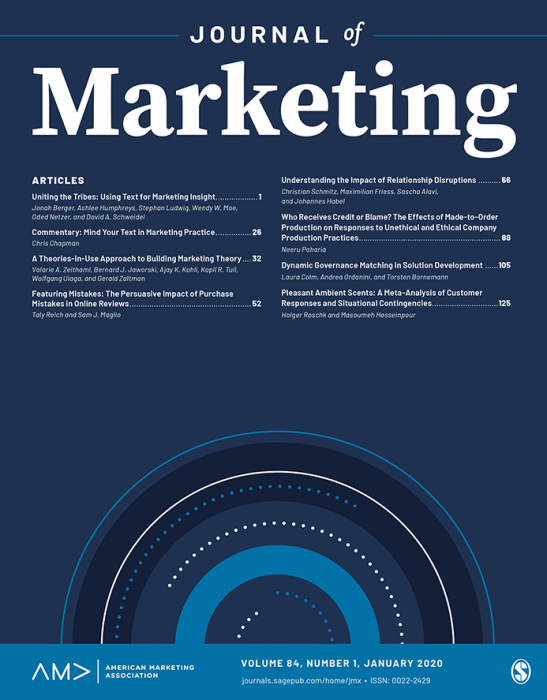快讯空气污染对消费者消费的影响
IF 10.4
1区 管理学
Q1 BUSINESS
引用次数: 0
摘要
空气污染是全球经济和社会日益关注的问题。尽管人们都知道空气污染会损害我们的情绪和认知,进而影响行为结果,但空气污染对消费者支出的影响仍是一个未决问题。本文分析了韩国的空气质量读数和个人层面的信用卡交易,结果表明,当空气质量较差时,消费者会花费更多的钱。这种相关性在娱乐或休闲活动等享乐类消费中更为突出,因为这类消费的本质特征是更多的情感利益。作者考虑了可能的解释,主要假设是消费者将消费视为一种调节情绪的资源。研究结果经受住了一系列稳健性检验,并在对照实验中得到支持,从而加强了主要研究结果背后的因果推论。作者为利益相关者提供了制定可持续营销计划的启示,该计划不仅要追求管理利益,还要关注消费者在环境变化中的福利。本文章由计算机程序翻译,如有差异,请以英文原文为准。
EXPRESS: The Impact of Air Pollution on Consumer Spending
Air pollution is a growing concern to economies and societies worldwide. Despite common knowledge that air pollution impairs our emotions and cognition and hence behavioral outcomes, the impact of air pollution on consumer spending remains an open question. Analyzing air quality readings and individual-level credit card transactions in South Korea, this paper shows that consumers spend more money when air quality is poorer. This correlation is more prominent in hedonic categories, such as entertainment or leisure activities, where the nature of consumption is characterized by greater emotional benefits. The authors consider potential explanations, and the leading hypothesis is that consumers treat spending as a mood-regulating resource. The results survive an array of robustness checks and are supported in a controlled experiment, reinforcing a causal inference behind the main findings. The authors provide implications for stakeholders to develop a sustainable marketing program that not only pursues managerial interests but also concerns consumer welfare in the face of environmental change.
求助全文
通过发布文献求助,成功后即可免费获取论文全文。
去求助
来源期刊

Journal of Marketing
BUSINESS-
CiteScore
24.10
自引率
5.40%
发文量
49
期刊介绍:
Founded in 1936,the Journal of Marketing (JM) serves as a premier outlet for substantive research in marketing. JM is dedicated to developing and disseminating knowledge about real-world marketing questions, catering to scholars, educators, managers, policy makers, consumers, and other global societal stakeholders. Over the years,JM has played a crucial role in shaping the content and boundaries of the marketing discipline.
 求助内容:
求助内容: 应助结果提醒方式:
应助结果提醒方式:


